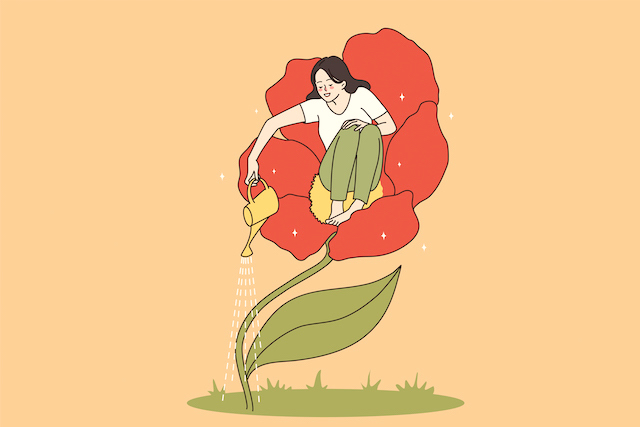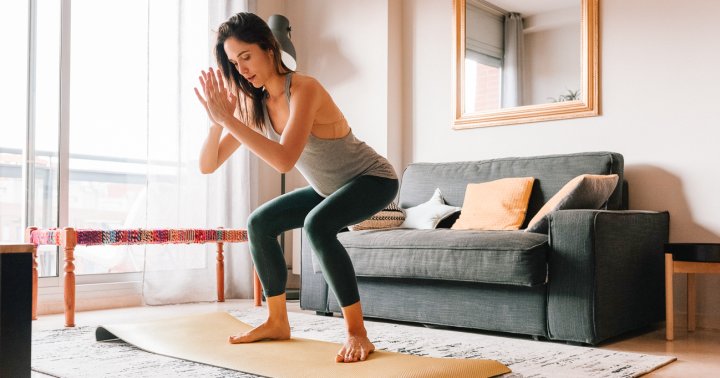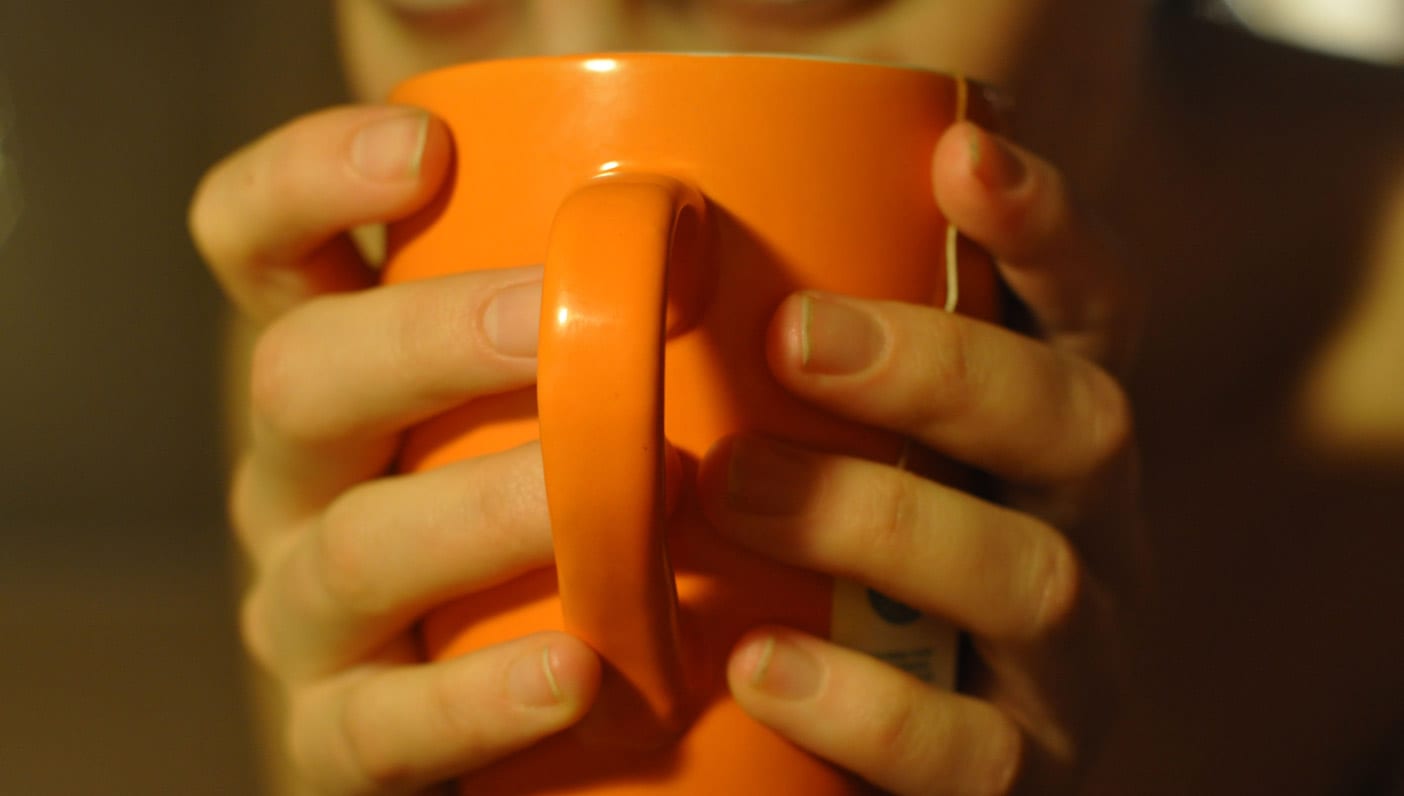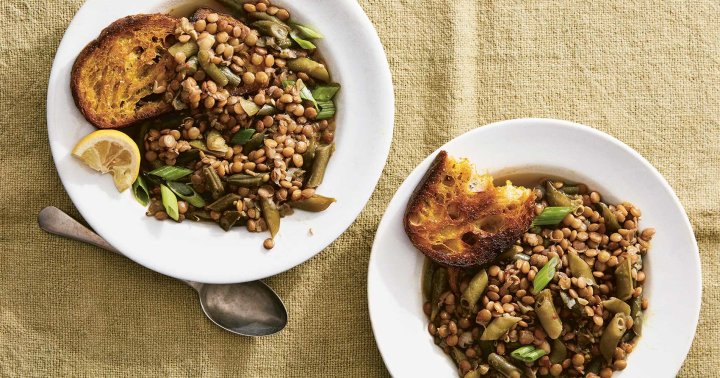A French Buddhist Nun Finds Joy Serving as a Chaplain in the Prison System
Lama Droupgyu Wangmo has received a National Medal of Honor for her work developing the Buddhist prison chaplain network in France. The post A French Buddhist Nun Finds Joy Serving as a Chaplain in the Prison System appeared first...
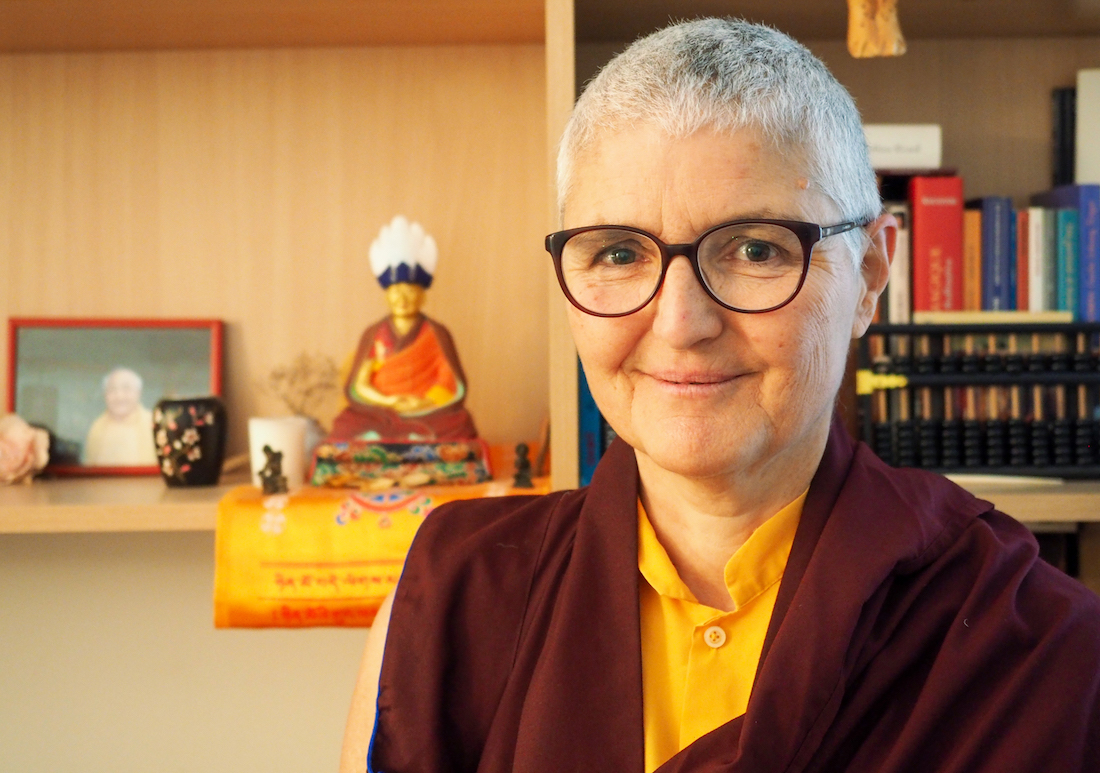
Born and raised in Paris, Lama Droupgyu Wangmo, née Fabienne Guillaume, began studying traditional Chinese medicine when she was twenty. The school’s Chinese medicine master had asked students to practice qigong every day for at least an hour, and Fabienne, who practiced assiduously, began to have practice-related experiences—some of them troubling—in which the material world seemed less solid than usual. She had questions about her perceptions as well as about the mind’s influence on health and well-being in general.
She spoke about this with her Buddhist friend and neighbor Delphine. Delphine suggested that Fabienne join her on her next trip to Dhagpo Kagyu Ling, a highly regarded Tibetan Buddhist center in Dordogne, southwest France, that offered public teachings and short-term practice sessions. “Come meet my teachers,” Delphine said. “They’ll help you understand what you’re experiencing.”
During that visit in 1990, Fabienne took refuge, received helpful instructions from visiting teacher Jamgon Kongtrul Rinpoche, and met the center’s meditation master, Gendun Rinpoche. Deeply inspired by Gendun Rinpoche’s presence, she returned to Dhagpo whenever she had time off. After a year, she began thinking about doing a closed retreat in Auvergne, central France, where the Dhagpo mandala’s long-term retreat centers and monastery were. “There were limits to what I could do practicing on my own in Paris.” Three years later, in 1994, she entered the first of what would be two traditional three-year retreats at Dhagpo Kundreul Ling under the direction of Gendun Rinpoche and the senior practitioners he had appointed as retreat guides.
“My work was going very well; I was looking to expand and move to central Paris. At the time I saw myself doing one three-year retreat, then returning to Paris where I’d build my Chinese medicine practice, get married, and have children.” As she was preparing for retreat, Fabienne took novice monastic vows for five years. But when she took her robes to Gendun Rinpoche to be blessed, he looked her in the eye and said, “So when are you taking the vows for life?” His question landed like an arrow in Fabienne’s heart and kept working on her. “The day he gave the full nuns’ vows, I took them and received the name Karma Droupgyu Wangmo,” Eminent Lady of the Karmapas’ Practice Lineage.
After her retreats, Lama Droupgyu Wangmo became involved in Buddhist prison chaplaincy. Last year, she was awarded a French National Medal of Honor for her work developing and participating in the Buddhist prison chaplains’ network.
When you’re not busy in the world, do you live in the nuns’ monastery? Yes. I’ve been living here at Dhagpo Kundreul Ling since 1993, either in retreat or in the monastery. This is my home.
You told me you had worked in the entertainment sector to finance your studies. How did your experience in the working world inform your activity within the sangha? After I finished my second retreat in 2001, I was asked to be an administrator at the Union Bouddhiste de France (UBF) and to take responsibility for communications between the different centers of the Dhagpo mandala. Eventually, I was also asked to oversee communications with the “outside world” as well.
And chaplaincy? In 2009–2010, the French Ministry of the Interior reached out to the UBF looking for Buddhists who could volunteer as chaplains within the correctional system. UBF’s board started identifying people who might coordinate the project.
Were they looking to serve inmates from former French colonies that were traditionally Buddhist, such as Cambodia and Vietnam? Actually, by offering visits by chaplains from a “peaceable” spiritual path, they were probably trying to provide a counterpoint to the proselytization introduced by some of the more radical or evangelistic religions. Plus, a number of inmates from a variety of backgrounds were asking to see Buddhist chaplains. While the government does not recognize or fund any particular religion, French law mandates that anyone who is deprived of their freedom—in corrections, hospitals, nursing homes, etc.—has the right to request spiritual support according to their preferences.
Approximately how many Buddhist chaplains serve in the prison system, would you guess? I don’t have to guess—as the coordinator, I know them all. At present, there are twenty of us visiting people in about forty prisons in metropolitan France. I’m actively looking for someone who can visit people incarcerated in the French West Indies as well.
Our chaplains are all volunteers. They have to be backed by their communities—Zen and Tibetan Buddhists for the most part—and recognized for their commitment to the dharma. Plus, their activity is supervised by mentors or preceptors from their traditions.
How do they support inmates? Buddhist chaplains are able to reserve prison chapels where several people can gather to practice together and we have keys to the cells for visits with individuals, which makes it possible to have very personal encounters with them. We’re allowed to bring practice materials such as books, statues, prayer beads, etc., when helpful.
When the pandemic was peaking and no visits were permitted, we fought to get phones with a toll-free number into the correctional system. It was a bit complicated, but we worked it out so inmates could call eight hours a day, seven days a week if they needed to. Two or three of us were always available to talk.
In North America and elsewhere, Buddhist chaplains often offer mindfulness for prisoners who are not necessarily Buddhists, as well as for staff. What about in France? There are other associations that offer secular mindfulness in the prisons. For the time being, the UBF focuses on giving inmates who want to practice Buddhism an opportunity to do so. In France, a chaplain, by definition, is a minister connected to a particular religion. We’ll see anyone who asks to meet us, but our visits are, you might say, rooted in our practice: we all represent Buddhism and are sharing the Buddha’s teachings as best we can.
Which Buddhist teachings and practices do you share? Mindfulness as taught in the Buddhist traditions is the main practice. We invite people to develop a real awareness of their situations and offer them tools to help them understand how to change the habits that got them where they are. If they don’t want to fall into the same patterns, they have to give themselves the means to change their conditions. We have exchanges about the four noble truths, the four thoughts that transform the mind, the four immeasurables, and so on, and we invite them to think about karma and the importance of ethical, benevolent behavior. We encourage them to be mindful in their daily lives and to develop an attitude of generosity towards fellow inmates and guards.
Can you share an encounter that really struck a chord? Once I was called into a women’s prison, which is pretty rare; only 5 percent of the correctional population is female. When I arrived in the person’s cell, she said that prison had saved her life. She was a Buddhist, but she’d never really practiced until she was incarcerated. In prison, she was spending two to three hours a day meditating on Chenrezig [Tibetan Buddhist deity of compassion] and was experiencing the profoundly positive benefits of her practice. She said there was a lot of joy in practicing and helping others. Given her conviction and positivity, it was a powerful encounter for me.
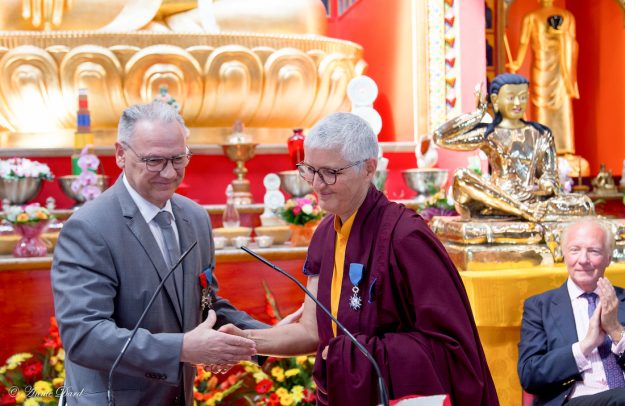 Lama Droupgyu Wangmo receiving the Medal of Honor | Photo by Annie Dard
Lama Droupgyu Wangmo receiving the Medal of Honor | Photo by Annie DardYou recently received a Medal of Honor. Can you tell us about that? Someone nominated me behind my back. How it works is a branch of local government reviews your activity, then communicates the results to the appropriate ministry—in my case, the Ministry of the Interior—which in turn presents their recommendation to the President of the French Republic. There are all sorts of medals; the one I received belongs to the Knights of the National Order of Merit category.
At first, I wanted to decline it—it seemed so disproportionate with regard to my activity as a Buddhist nun. But one of my teachers said that it was significant because it showcases the activity of Buddhist women in general and of nuns in particular.
Once it became official, it was decided that the prefect of our département, the Puy-de-Dôme, would award the medal during a ceremony within a greater event that was held here last summer marking the twenty-fifth anniversary of the parinirvana of our lama, Gendun Rinpoche, and celebrating his legacy and continuing activity. I experienced it like a mandala offering. It was as if I could thank my teachers and the Dhagpo mandala for everything I’ve received from them.
The director of the national correctional bureau was there, as well as the chief of police, the president of the regional office of medals, a former prime minister, and many people from other religions, including several other Buddhist traditions. There were already over five hundred people there for the Heritage and Continuity gathering, so it was an event within an event and it was really perfect.
In your activity as a chaplain, what have you learned? I’ve learned how important it is to be aware of each moment, of every detail. And how much joy there is—it really surprised me. It’s difficult for us to gain access [to inmates] and there’s not much time, so the people we visit generally get down to brass tacks and focus on what’s essential. I find that these situations require a profound presence and extreme vigilance; if you’re not completely present, you’ll feel it. And in fact, whenever you are completely present—in any situation—there’s an immense joy connected with being in the heart of the moment.
There’s joy too in sharing the teachings that may help someone find liberation from their suffering, even while they’re in prison. I’ve found that there are people “outside” who are far more constrained. You see that being a captive is a point of view, whatever the situation: your mind can be entirely free in prison, and you can be entirely imprisoned outside. What a paradox! And when you help an inmate experience a moment of profound freedom, when you see that flash of happiness in their eyes, it’s really too marvelous.
This interview was conducted in French and translated by Pamela Gayle White.

 Astrong
Astrong 








